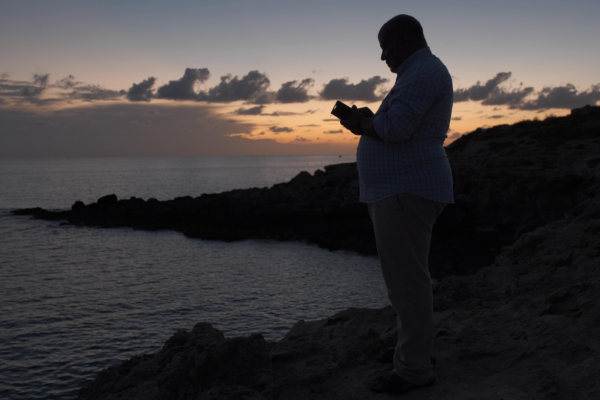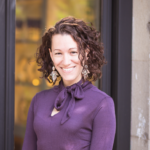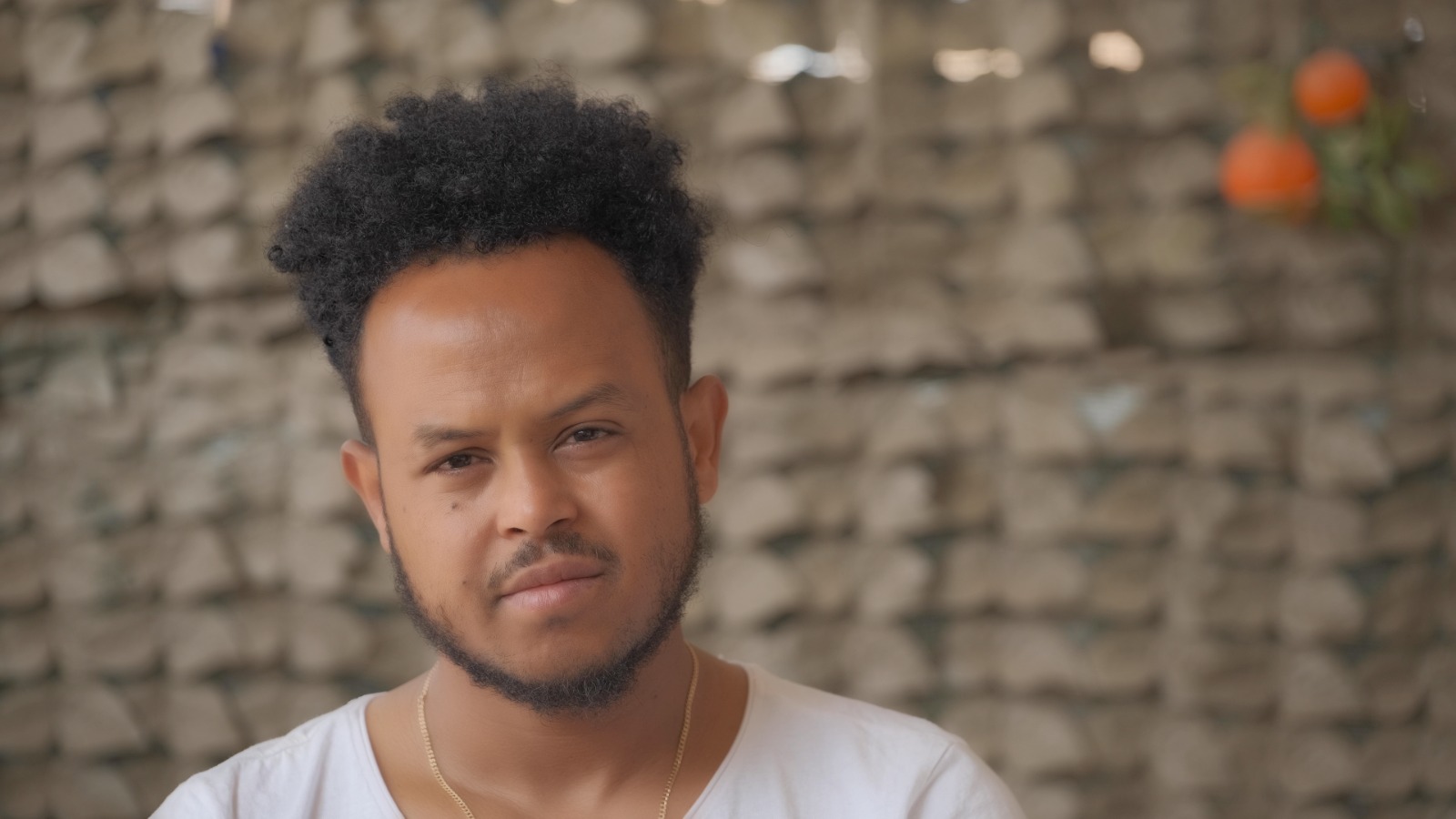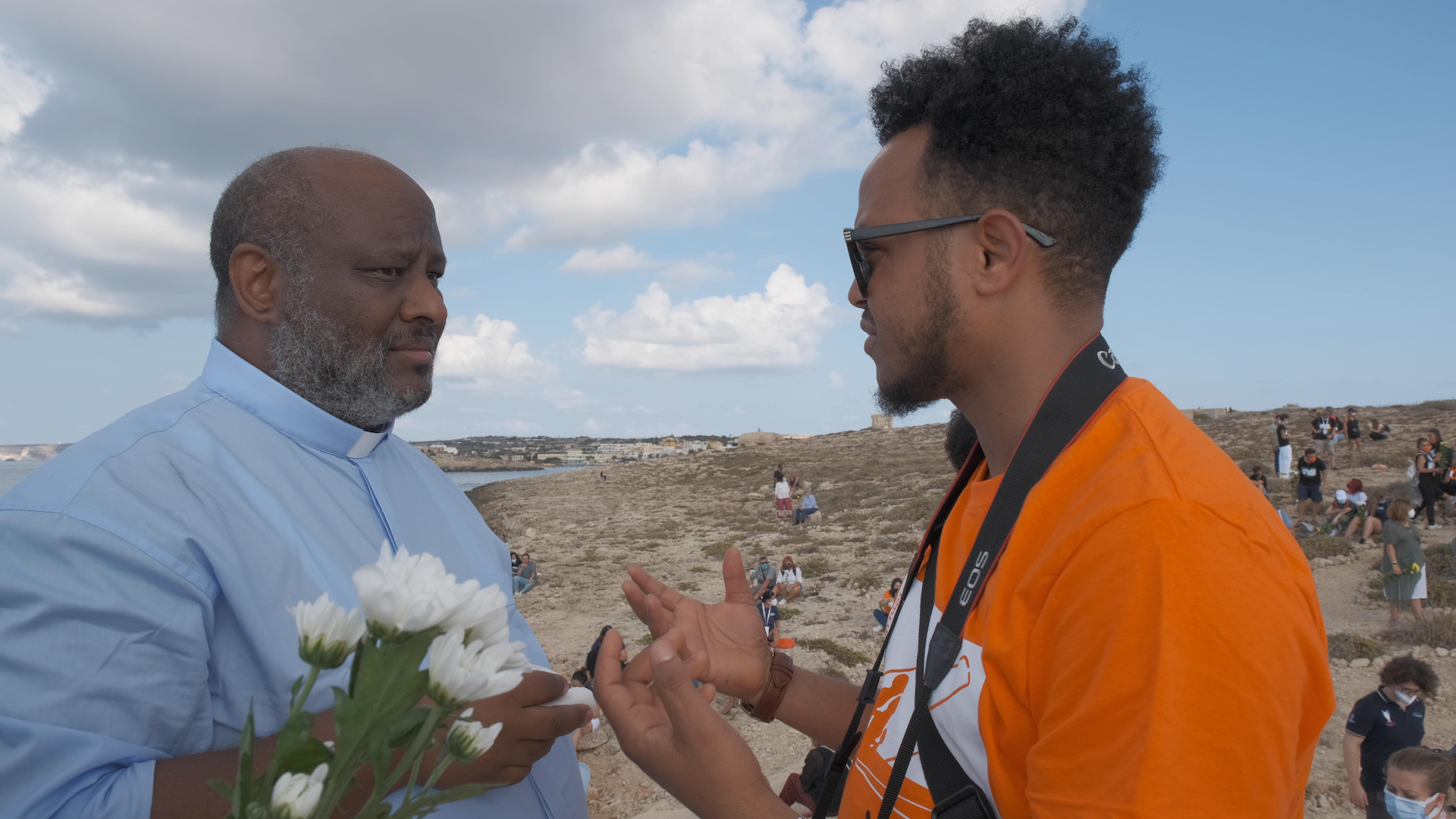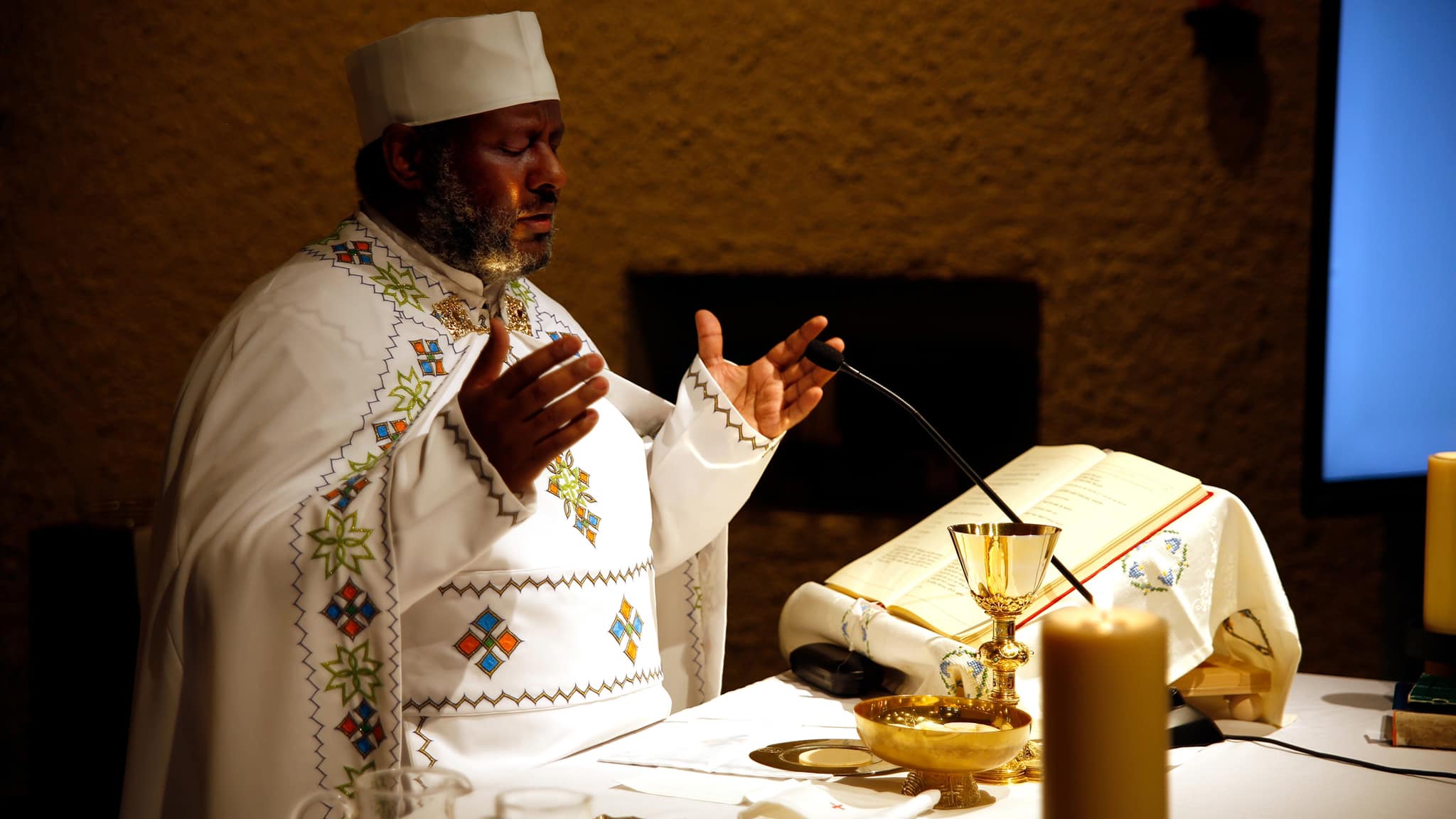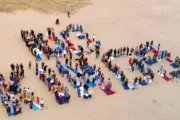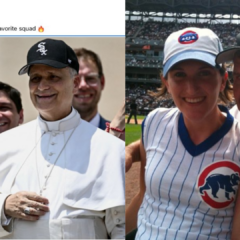For nearly 20 years, Eritrean Catholic Priest Mussie Zerai has fielded thousands of distress calls from refugees and migrants on shipwrecked vessels in the Mediterranean Sea.
“I’ve heard the voices. I’ve heard the screams. I’ve heard the distress calls, shortly before talking to them, and shortly after they are swallowed up by the sea. If you don’t have broad shoulders, if you don’t have strong footing, which for me is my faith and prayer, the risk is huge. Even the risk of ending up in some psychiatric clinic is real,” he said.
I profiled Father Zerai as part of CRCC’s project on engaged spirituality, which examines the role religion plays in motivating exemplary individuals to commit their lives to humanitarian work. “Spiritual exemplars,” like Zerai, are habitually confronted with the bleakest aspects of humanity. While others balk and turn away, they turn towards, helping support people through profound pain, injustice and human rights violations.
The Migrant Priest, a Voice of America documentary, shadows Father Zerai as he travels to Lampedusa, Italy to commemorate the October 3, 2013 shipwreck. Nine years ago, a fishing vessel with more than 500 migrants and refugees caught fire and capsized off the coast of Lampedusa. Only 155 people survived.
Eritrean refugee Solomon Asefa, also featured in the broadcast, is amongst the survivors. “You put your life 100% on the line when you cross [to Europe],” Asefa said. “It’s devastating being the one who survived and the one who has to remember.”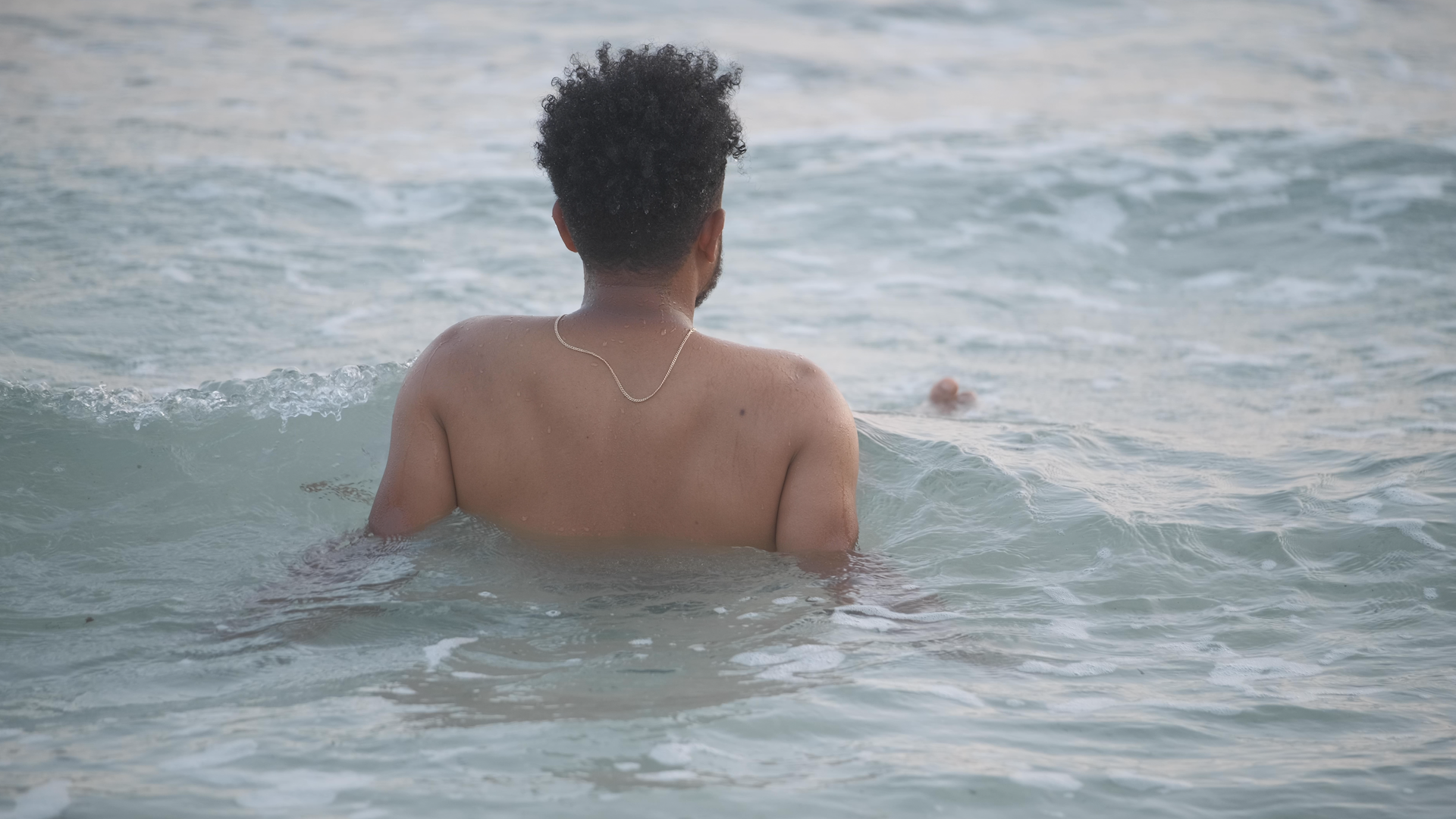
Solomon Asefa reflecting in the Mediterranean Sea, Lampedusa, Italy. Photo by Linda Freund.
The Mediterranean Sea route between Libya and Europe is known as the world’s deadliest. In 2021, nearly 2,000 migrants and refugees died or went missing there, reports the UN’s refugee agency (UNHCR). But Asefa, fleeing torture and foreseeable death, was left with little choice.
“[The Eritrean military] tortured me day and night. They did this just for a normal thing, for little infractions or challenges,” Asefa said. In the following conversation between Father Zerai and Asefa, recorded in September 2022, the pair discuss what drove Asefa to board that fated boat to Lampedusa and what it means to be “a voice for the voiceless.”
WARNING: This conversation contains graphic descriptions of torture. It’s been edited for brevity and clarity.
Solomon Asefa in Lampedusa, Italy. Photo by Linda Freund.
Solomon Asefa: The reason I’m sharing my story is that the challenges and hardships many of us face to come [to Europe] may be similar for all Eritreans. I was in mandatory military service. After I finished grade 12, I went to Sawa Military School. After Sawa, I worked in the government garage. I was a driver.
While working in the government garage, there was not much work. We spent most of the time sitting. The officials were paying us only 91 Nakfah [$6 US dollars] as a monthly salary. I only got paid when the finance officer came. If I wasn’t there at the time, I was considered absent from work as a whole.
Whenever I was in Asmara, Eritrea [the Eritrean military] could call me anytime and order me to come right away. If I said I couldn’t come now, they would jail me somewhere for a week. If the officer felt like it, he could put me in jail. People were jailed up to two weeks at a time. The prison was practically my home.
Father Mussie Zerai: It’s like slavery.
Solomon Asefa: The last thing that made me decide to leave [for Europe] was my aunt in Sudan. Her daughter-in-law was injured during childbirth. She and her daughter came to Barentu, Eritrea from Sudan, and I traveled to Barentu, Eritrea to visit them. While I traveled there to meet them, some [Eritrean military] officers stopped me in Keren, Eritrea. I had ID, but it displayed permission to and from the Southern and Central zones. They said: “What were you thinking? Are you trying to cheat us?”
I tried to explain I was passing through, but, Father, the cruelty I faced. They took a scarf and tied me up with it, and they took me someplace else. They tied my hands with iron bars, and they hung me up in a dirty place. There were two men, and they beat me and flogged me until they thought I was dead. After that, they carried me by my hands and feet and threw me somewhere.
They were cruel. They would come in the dark, in the middle of the night around 2 or 3 AM. The depths of the devilish brutality, with which they beat me at that time. They beat me for 15 days straight, day and night, saying “Confess,” but I said I did not think like that. I had no other intentions.
After the 15-day torture, they didn’t get anything out of me, so they let me go.
You can’t say anything to them. You have to have permission to go anywhere, even from one place to another place. So, if you go somewhere without their permission, they think you are up to something bad. My family, my father, and my mother were worried about where I was for two weeks. After spending two weeks without seeing them, my mother was weeping.
Without getting the chance to see her, I was forced to flee [Eritrea] without having any prior intentions to do so. With money and help that I got from my brother in Israel, I crossed with smugglers from Mendefera, Eritrea to Ethiopia. With God’s help, I escaped my captors and crossed to Ethiopia.
Father Mussie Zerai: Wow. So they made you cross [to Europe]. That wasn’t your intention?
Solomon Asefa: Yes. Because, thanks to God, I was working while I was there [in Eritrea]. I had no worries. I accepted the situation as it was in Eritrea. It felt like we were living in another world because when you are in Eritrea, you may feel like you are doing well. You have no nuanced understanding of what’s going on out there. We had no connection to the world. We had no internet access. We had nothing. So, you may think you are better than the others. As you know, Shabia [the Eritrean military] has only one TV channel.
Father Mussie Zerai: Yes.
Solomon Asefa: What they do is they report about a bombing in Syria, or how many people died in Somalia, in Iraq, in Libya. The number of people is all that they report on the television. So you feel like, “Wow, we are the only ones doing better.” You are filled with this thinking that you are doing well. It feels like that other life elsewhere is a risk.
Also, we all knew many friends who were executed with a gun in our sight. But that felt like nothing compared to when you risk crossing over to Europe. You put your life 100% on the line when you cross. The cruelty you face if [the Eritrean military] catches you. They do whatever they like. You can’t do anything. They may hang you up or kill you if they feel like it.
Father Mussie Zerai: Now, when they beat you for 15 days and when you returned to your unit, your superiors did not ask why they beat you or why they weren’t informed?
Solomon Asefa: Woo! They were waiting for me back at home to arrest me again for two or three years. They even went to my house and threatened my family, even though [the Eritrean officers] knew I was in jail.
Father Mussie Zereai and Solomon Asefa at 2021 memorial of October 3, 2013 tragedy, Lamedusa, Italy. Photo by Linda Freund.
Father Mussie Zerai: Wow. Even though you were working for them?
Solomon Asefa: Yes, even when we are in their service, they still arrest us. They went to my family [while I was being tortured], but no one could say anything.
Father Mussie Zerai: Your family didn’t know you were arrested?
Solomon Asefa: They didn’t know, my phone was shut down. I didn’t have a phone. I didn’t have anything. Many of those who were with me unexpectedly confessed, fearing they would be executed. But I gave my neck to knife. I said they can do whatever they want. I answered, “I didn’t think this, I didn’t think that.”
I experienced such terrible things, my hands were damaged, they tied me with iron bar, they tortured me day and night. Their cruelty is not justifiable.They did this just for a normal thing, for little infractions or challenges.
Father Mussie Zerai: This is a serious violation of human dignity and human kind without law, without prosecution. There is no one who would question who arrested you? Who sentenced you to be beaten up? Which court did you appear in? There was no representation of a lawyer in court? It doesn’t seem you had any of these rights.
Solomon Asefa: Yes, you know what the problem was. The problem was the people who do this have no compassion. I would be surprised if they did. They despised us, treating us as if we are not even humans.
Human beings are precious beings, whether rich or poor or educated. Those folks were illiterate. They didn’t even write their names. These are people whose ignorance had engulfed them so much that they had no compassion for others. They are people who could deliberately decide who to torture.
They don’t have any humanity in them. If they feel like it, they could take you to the desert and execute you. They do whatever they feel like. In short, there is no one who they must answer to.
Father Mussie Zerai: Because there is no rule of law. If they knew they were legally responsible, they would be cautious, but since there is no law, the decision of life and death lies in their hands. This is why they aren’t educated.
That’s precisely why our fathers said they would rather die at the hand of the educated. The educated always understand the dignity of human beings and the rights of human beings. They are more cautious and aware than the uneducated.
Maybe these people are mentally ill. There are people who are psychos. Why would you beat someone like that and torture them? There should be an innate human compassion that exists even if you are uneducated.
These are, clearly, mentally ill people. Truly those people are seriously sadistic people who were administering such beatings. Few people could do this, even the uneducated people. Many of our fathers, our grandfathers were not educated but they had natural compassion. They had the fear of God. To do such things to your brother. You were not a stranger to them. You were not even an enemy, you were their brother.
Solomon Asefa: You want to know what they said to me when I said, “I am your brother?” and “Why do you beat me like this?” They said, “Shut up. We don’t have a brother like you.” Their lack of humanity and ruthlessness was… I was near death, barely able to breathe. [My captors] were eating, feasting, and drinking on top of me. They just laughed and sneered while I was just dying in front of them.
Just their inhumanity is so sad. I was suffering and, honestly, I didn’t do anything wrong. I was innocent. I was only suffering because of their ignorance.
Father Mussie Zerai: God saved you then. If you had died, would they have told your family that you were martyred?
Solomon Asefa: They would do nothing. They just bury you in the background like you’re nothing. No one would know. They would just finish you off, go to your family and say, “Your son is well, he will call you today or tomorrow. He is fine. Tell the others he is doing well.” So many young men of Eritrea have been killed because of them, from the beatings.
If you had bad heart problems, bad blood pressure, or any health problems, you would immediately collapse as a result of their harsh beatings. They would dismember your head.
They catch you so quickly now. No one knows who caught you and who took you. No one informs your family. They keep you [imprisoned] and if you die, they bury you quietly and it’s done with. Your family worries about what happened to you. They wonder: “Is he alive today? He is not calling me, he is not sending me any mail.”
Father Mussie Zerai: They would not tell [your family] if you died?
Solomon Asefa: How would they tell them? They would not let them know.
Father Mussie Zerai: Our home country [of Eritrea], our families, our beloved home. These are the challenge that made us both leave our home to live in a foreign country. Thank God you survived. I am glad you are safe now. You survived and today you are telling the story. How many of our brothers and sisters did not get this opportunity. How many of our brothers were buried in some backyard and left there?
Solomon Asefa: Yes, yes very true.
Father Mussie Zerai giving mass to Eritrean Catholics in Zurich, Switzerland. Photo by Linda Freund.
Father Mussie Zerai: Now this is history. This is the history that can be written. The next generation should know about what you experienced. How many people out there think that we are just full of ourselves and just choose to emigrate? Many of those who cross the Sahara Desert and the sea to come to Europe are called so many things: traitors, and selfish. But only the young people know how much you went through.
Everyone still on the inside [in Eritrea] is writing their own history and holding it inside. Tomorrow, maybe with God’s help, the groundwork can be created for the situation to become better.
The mystery that Eritrea carries. You never find it in the world. It should be written so it will not fade away. The stories of other comrades who have gone through this problem like you. We Eritreans are not that good at writing books.
Solomon Asefa: Yes, very true.
Father Mussie Zerai: We will either have to share our history in videos or storytelling so that it won’t be repeated tomorrow. History like this shouldn’t be repeated. The atrocities committed by Hitler’s people are still remembered. They have been written about and are being told. They are preventing it from being repeated as it is recognized and remembered annually.
The suffering you went through now should not be repeated tomorrow. It should not be repeated by the coming generation. This history must be written and told. Let it be a lesson to the next generation.
Linda Freund is a journalist fellow with the Spiritual Exemplars Project.
